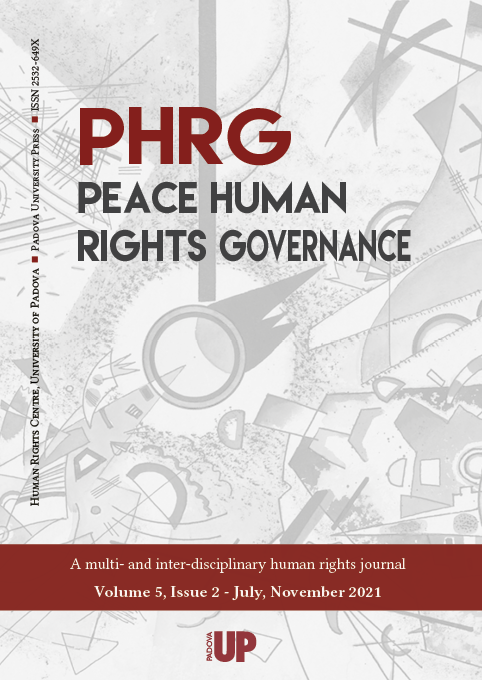Raccolte

Safeguarding Religious Freedom in transitional democracies: the privileges of the Serbian Orthodox Church in Kosovo as supra-constitutional rights
- Sito internet
- Peace Human Rights Governance 5(2)
- Tipologia pubblicazione
- Articolo / Saggio
- Pagine
- 207-227
- Lingua
- EN
The article analyses the peculiar position of the privileges and rights granted to the Serbian Orthodox Church by the Constitution of the Republic of Kosovo. Those privileges and rights, within the legislative framework applicable in the said territory and based on the principle of effectiveness after the 2008 Unilateral Declaration of Independence are – or should be - the legal foundation of all activities of Kosovo Institutions vis á vis the Serbian Orthodox Church. They are to be considered supra-constitutional rights which cannot be derogated unilaterally by Kosovo authorities which, rather, recognized their relevance also within their planning documents concerning the protection of cultural heritage. There is an intrinsic link between the privileges of the Serbian Orthodox Church in Kosovo and the safeguard of religious freedom of certain communities in numerical minorities in that area. Respect for religious freedom and cultural heritage is also a precondition for lasting peace and conflict prevention; this is the reason why the protection of relevant communities’ rights in Kosovo and the effective enjoyment of the religious freedom are strictly interlinked with the protection of the privileges granted to the Serbian Orthodox Church. This perspective inevitably links human rights and communities’ rights to the concept of rule of law which, in the Republic of Kosovo, will always be tested in consideration of the protection acknowledged to - and effectively enjoyed by - the Serbian Orthodox Church. The article scrutinizes the nature of supraconstitutional rights and privileges granted to the SOC and how they should be recognized, or have already been recognized, by the relevant Kosovo authorities. The interconnection between religious freedom and protection of the Serbianbuilt religious heritage in the form of SOC’s privileges is explored and it is the main assumption lying behind the possibility of a durable peace in the area.

